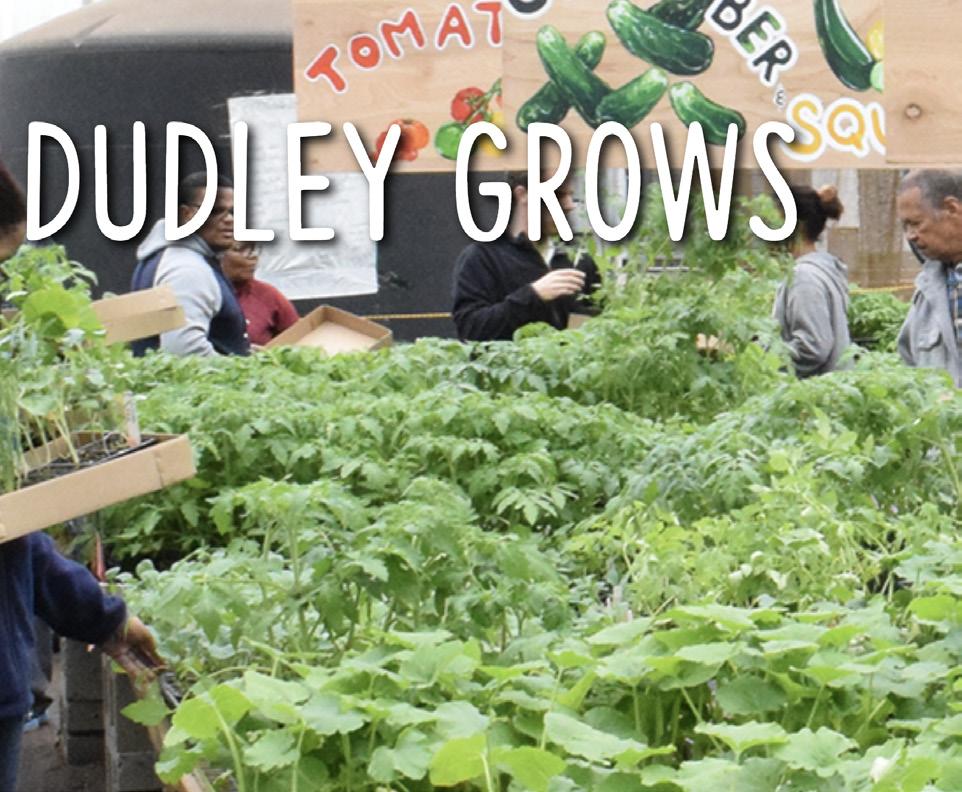
2 minute read
POTENTIAL FOR CHANGE
Urban farmers and gardeners need land access and land security. Actions that expand that access will help create new growing spaces in Philadelphia, which will not only grow the footprint of agriculture in the city, but also create more opportunities for residents of all ages and abilities to build community, to heal, to learn, and to work. Establishing legal pathways to land security is critical for those who tend and care for growing spaces that do not have legally recognized access to or ownership of their land. These pathways, including ownership and long-term leases, must assure growers that their gardens and farms will remain sources of nourishment and community for years to come.
In addition to City-led pathways to land security, community-led efforts can create new opportunities for gardeners and farmers. Examples of collective land ownership include community land trusts (CLTs), in which a nonprofit typically owns land to preserve and protect it for agricultural uses forever, or cooperative models, in which member-owners pool resources to extend their buying and selling power.
Advertisement
Addressing issues related to land will also advance Philadelphia’s need for climate justice and restoration. Restoring natural land and soil for agricultural use will boost Philadelphia’s resiliency in the face of ongoing climate change. This means caring for, cleaning, and building the soil, and healing the Earth while ensuring that those who eat from these gardens are eating foods that are culturally relevant, nutritious, chemicalfree, and safe.
Finally, society needs land justice, which means repairing the history of Black, Brown, and Indigenous land loss in this country and this city. Land is the key to freedom, wealth, and power in this country. Redistribution of land or rematriation—“restoring a people to their rightful place in sacred relationship with their ancestral land”34 —recognizes land as a tool for advancing racial, economic, and environmental justice and holds transformative potential for community healing, growth, transformation and cohesion.
CASE STUDY DUDLEY STREET NEIGHBORHOOD INITIATIVE, BOSTON
Visithttps://groundedinphilly.org for more information
Soil Generation, a Black- and Brown-led coalition of gardeners, farmers, individuals, and community-based organizations working to ensure people of color regain community control of land and food,30 has made policy demands and led campaigns to hold the Land Bank accountable to the urban agriculture community. Soil Generation is currently incubating a nonprofit, 4DaSoil,
The City’s Community Life Improvement Program (CLIP) enforces the City’s regulations to make sure vacant lots are kept clean. The Department of Licenses & Inspections (L&I) issues citations that can lead to fines for front-yard growers, wildlife habitats, gardens, and farms for what may appear to the untrained eye to be overgrowth or scattered unwanted plants. It is necessary to recognize that overgrowth of gardens could be related to productive agricultural uses or habitat creation for pollinators. Therefore, it is important for agencies (e.g., CLIP and L&I) to work with growers to ensure that their gardens are not mistaken as a nuisance, which could result in ticket violations or removal of community growing spaces.
The Boston-based Dudley Street Neighborhood Initiative (DSNI) provides an historic example of how Black communities have used community land trusts (CLTs) to preserve land for growing and other community development. DSNI started one of the nation’s most notable CLTs, called Dudley Neighbors, Inc. (DNI), in the late 1980s. Today DNI property is home to housing, businesses, farms, parks, and more. DSNI also established the Greater Boston Community Land Trust Network to support emerging CLTs by sharing information and advocating for policies and programs that aid in their creation, maintenance, and expansion. DNI also hosts its own urban agriculture program, Dudley Grows, in partnership with The Food Project.35 Residents lead the farm and greenhouse36 on DNI CLT property, as well as three residentowned markets and two restaurants.








